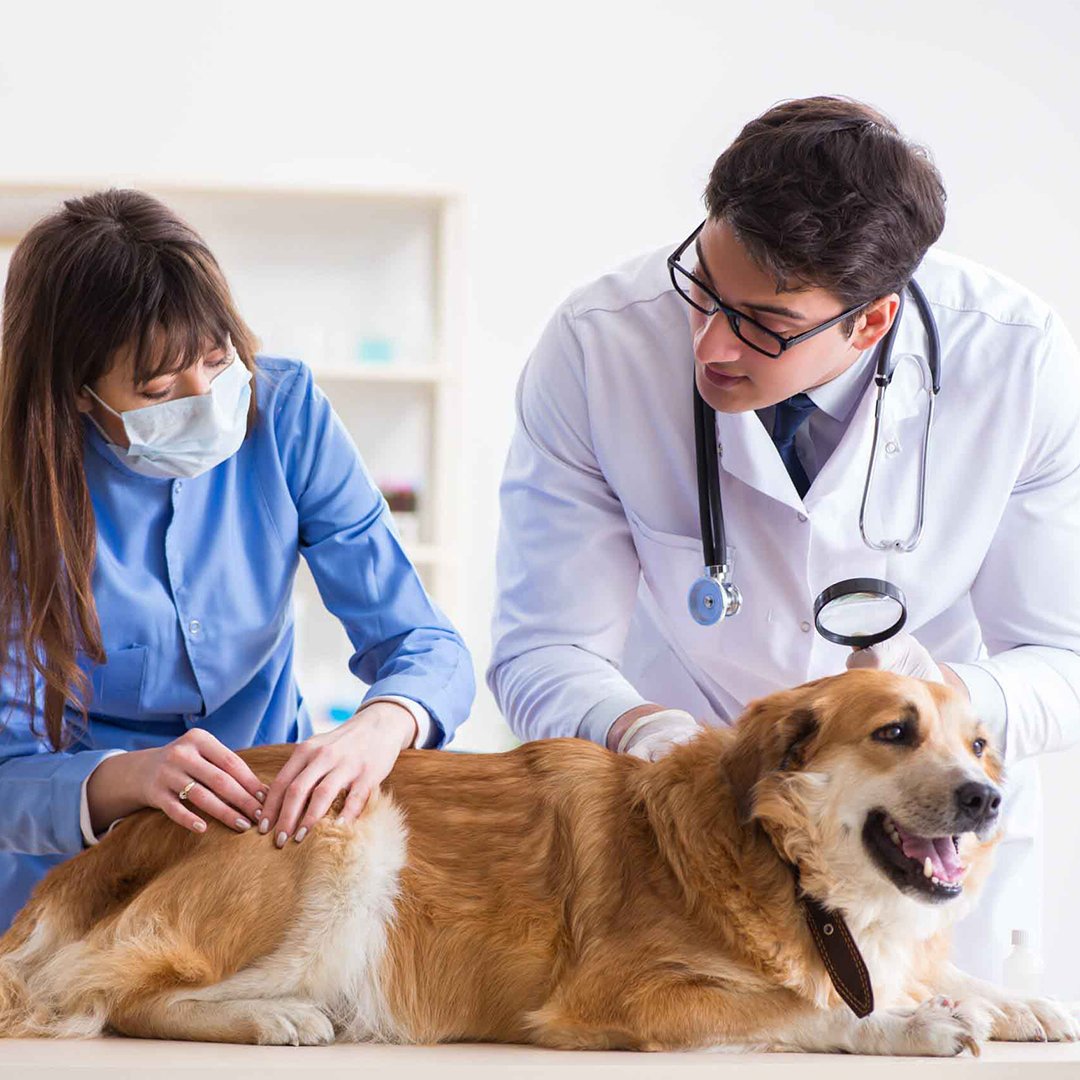

Diagnostic Services
We can run all the routine diagnostic tests your cat or dog needs, including bloodwork, urinalysis, fecal testing, parasite tests and cytology. As pets are prone to hide illness and pain, regular testing gives you peace of mind that your pet is healthy and free from any underlying issues. Diagnostic tests also help doctors to diagnose any illnesses quickly and easily, so we can get your pet the right treatment early on.
Bloodwork:Blood tests often take the form of a Complete Blood Count (CBC), which measures the number of red and white blood cells and platelets, or a Blood Chemistry panel, which tests organ function, such as the kidneys and liver. CBCs can detect infections, anemia, dehydration, blood disorders and the immune system response. Blood Chemistries show if any enzymes, electrolytes, minerals and hormone levels are too low or too high, often indicating a problem in the way organs are functioning. Bloodwork is also important to determine whether your pet is healthy enough and ready to undergo anesthesia.
Fecal testing: Fecal testing is typically used to determine whether your pet is suffering from any internal parasites, such as worms or giardia. Sometimes, your cat or dog may not display any symptoms initially, but it’s important to treat pets as soon as possible to rid them of any parasites, before their long-term health and development is affected, and to stop them transmitting the parasites to any other pets or family members. The fecal sample will also be checked for color, consistency, as well as the presence of blood or mucus.
Urinalysis: Urine samples are vital tool in the diagnosis of a number of conditions, including urinary tract infections (UTIs), kidney or bladder diseases, and diabetes, amongst others. Urinary issues can be serious, but are thankfully often easily treated once diagnosed.
Tick-borne and Heartworm testing: We recommend annual tick-borne and heartworm testing in addition to monthly preventatives. While preventatives are the best line of defense, they are not always foolproof, and as tick-borne diseases and heartworm may not show symptoms for months after infection, it’s important to test early and often to ensure your pet gets the treatment they need for these serious conditions.
Cytology: Cytology refers to the analysis of cells. It may include looking at discharge or cellular debris to diagnose an infection (such as an ear or skin infection). A biopsy (removing a very small part of a lump/mass) can also evaluate any lumps or masses to look for cancerous cells.
Radiology
Our in-house laboratory boasts digital x-ray and ultrasound machines for advanced imaging. Radiology is crucial to help our doctors understand what’s going on inside your pet’s body – for example determining whether your pet has a broken bone, checking on puppies or kittens in a pregnant pet, or understanding the impact of an illness on your pet’s internal organs.
Ultrasounds: Like x-ray, ultrasound also allows veterinarians to see inside a pet’s body, but in a different way. They use a beam of high-frequency sound waves (ultrasonic waves) and create a picture by recording the reflections of these waves. They are particularly useful for examining internal organs. Ultrasounds do not use any radiation, and your pet will not usually require anesthesia. They may, however, need a small amount of fur shaved to ensure a clear picture and diagnosis.
Echocardiograms: An echocardiogram is an ultrasound of the heart. They are often recommended if abnormal heart sounds have been detected during your pet's regular wellness exam. Our board-certified cardiologist visits our New York locations on specific days of the week. This procedure can help determine if there are any structural problems with your pet's heart. Following this, a treatment plan and therapeutic recommendations can be made. If this is something you would like performed at Small Door, our team can assist you with scheduling.
Preventative care is key to maintaining your pet's long-term health. Our consultations include discussions on


Vaccinations
This veterinary care provider offers affordable, high-quality services, prioritizing community involvement and making vet care accessible.
See Details

Nutritional advice
For optimal pet health, ensure a balanced diet with high-quality food, fresh water, and appropriate portion sizes, while consulting with your veterinarian .
See Details

Parasite control
To ensure your pet's health, implement a comprehensive parasite control plan encompassing regular preventative treatments.
See Details

Dental care
Dental health is a very important part of your pet's overall health, and dental problems can cause, or be caused by, other health problems.
See Details

Regular wellness checks
Regular wellness checks for pets, ideally at least twice a year, are crucial for early disease detection and maintaining overall health.
See Details

Diagnostic Services
Along with helping to diagnose specific conditions, blood work is also a part of routine diagnostics to monitor your pet's overall health.
See Details





